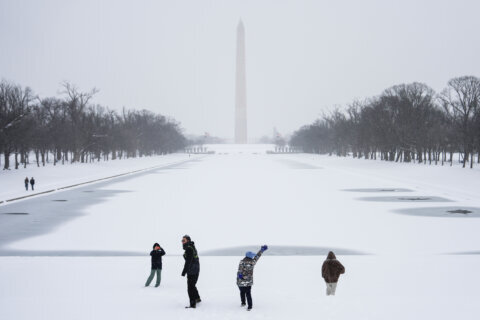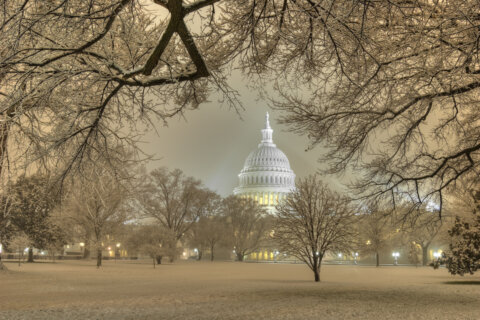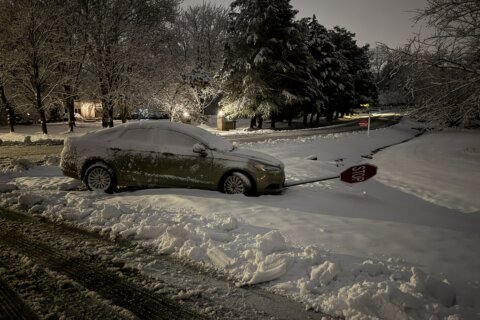While the remainder of February offers no hope for snow accumulation in D.C., residents have one last chance to see accumulating snowflakes: the month of March.
Only 0.4 inch of snow accumulated this season (so far), and that snowfall came a day before Groundhog Phil declared six more weeks of winter. The remainder of February offers a few ups and downs in temperatures, but no chance for snow accumulation.
The D.C. area has only seen four winters since 1888 with less than an inch of snow. The most recent thought came just three years ago, in 2019-2020. The winter of 1973 saw the least accumulation of any winter on record, with just a tenth of an inch falling at Reagan National in February.
March can surprise residents with snow. The chart below shows the late 1950s to 1960s were a snowy period in D.C. in March.
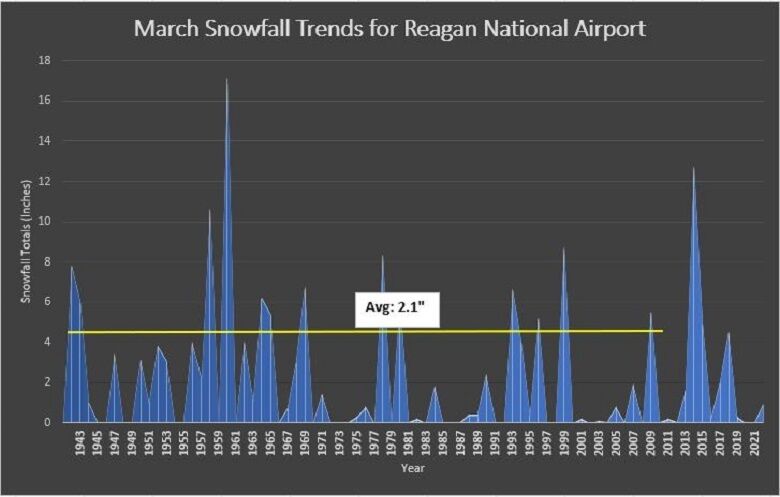
A snowy March has only happened once or twice per decade.
Since the early 1940s, 17.1 inches was the snowiest March in 1960, which was neither a La Nina or El Nino winter. The D.C. area hasn’t been able to match March 1960, but came close in 2014 with a foot of accumulation.
The average snowfall in D.C. for March is 2.1 inches.
The only saving grace for March snow this year in the nation’s capital is a recent stratospheric warming event. The winds around the polar vortex in the layer of the atmosphere above where the weather occurs (the stratosphere) have decelerated and changed direction. Temperatures have warmed significantly in the past week.
Historically, this leads to cold outbreaks across the Northern Hemisphere three to four weeks later, but not all the time.
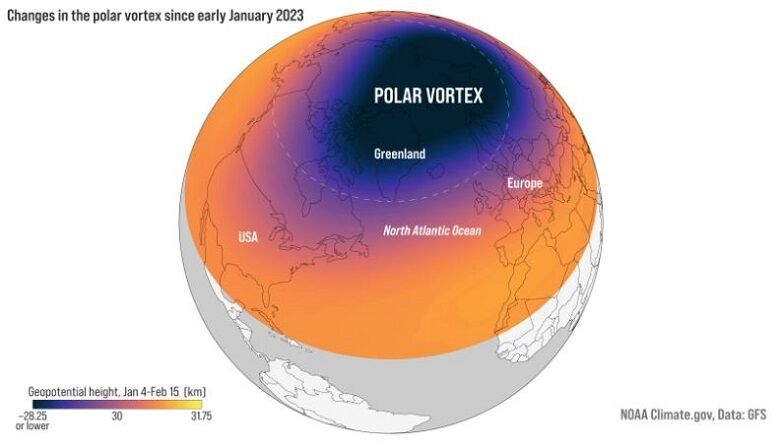
A stratospheric warming event in late February 2018 helped trigger 4.5 inches of snow the following month in D.C. Though a stratospheric warming one decade prior, in February 2008 did nothing to help the area’s snowfall.
The traditional first day of the growing season in D.C. is March 27; this is the region’s average last spring freeze in which morning temperatures drop below freezing for the final time of the season.
The earliest spring freeze was Feb. 27, 2010 and latest spring freeze on record was April 21, 1956. If no cold air intrusions occur in March to early April, it’s possible we could have one of the earliest spring freezes on record this year.
Yet, the Climate Prediction Center shows no strong signal for a cold or warm, wet or snowy March.
Stay with WTOP for weather on the 8’s to get the latest forecast in your neighborhood.


